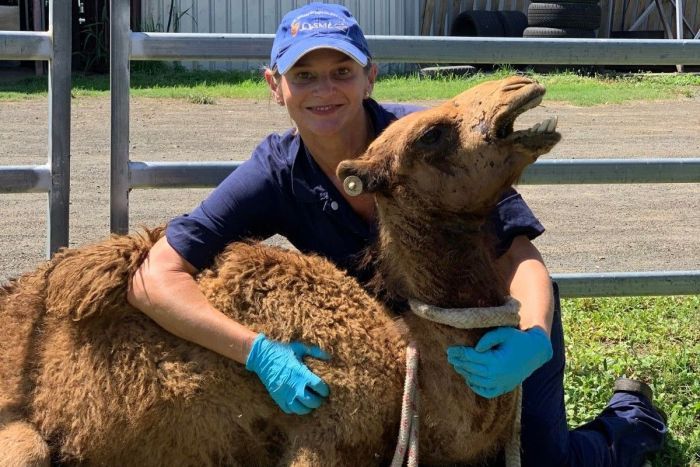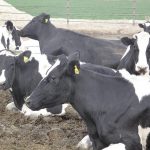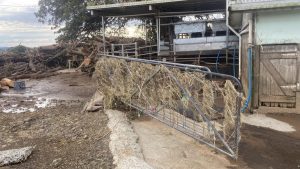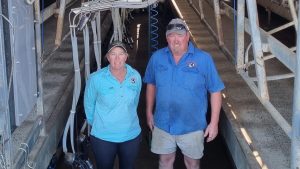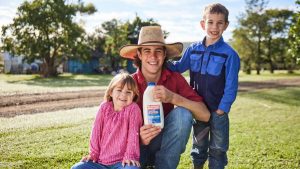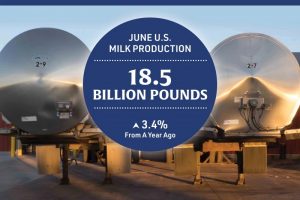
Key points:
Advocates say there is demand for camel but no consistent supply
Camels can survive in drought and may provide income to farmers
A local market is ramping up, with seven camel dairies in Australia
The “ships of the desert” have not just survived but thrived on some drought-stricken properties that have been forced to destock cattle.
They are also useful in co-grazing, thanks to their unique intestinal bacteria that can help break down poor-quality grasses.
Margie Bale is a large animal vet specialising in camels, who has become an advocate for the industry.
She said camels could even help farmers struggling through drought by providing alternate income.
“There [are] a lot of stressors on our protein industry,” Dr Bale said.
“For a long time that I’ve been working with camels, I just saw how perfectly adapted they were to these conditions, so it just made me start thinking that surely if we can give the camel a value, then there’s an industry in that for Australia.”
Demand is there; supply is not
Earlier this year, more than 5,000 feral camels were culled in South Australia’s north-west.
A main reason for the cull was fear they would cause significant damage to outback infrastructure, including fences and watering points.
In inner-city Melbourne, butcher Abukar Hersi, a Somalian immigrant, was disappointed when he heard about the cull.
“It’s very sad because this animal is really very interesting for our community and people from the Middle East,” he said.
“It is a very unique meat; it can be used like a lamb, it can be used like a beef.
“It should not happen like that. You should be organising and saying: ‘Who can fix up this problem we have?’
Mr Hersi sells fresh camel meat to people from parts of the world where it is common to eat camel.
“I was the number one to say: ‘I can take care of this, you don’t have to shoot the camel, I will take care of it,'” he said.
“The culture of Somalia is that camel is one of the best meats they have.
“The camel we believe has a lot more goodness than other animals because the camel can survive in the desert, which means if you have a camel, you can survive longer.”
Exporting frozen camel meat may be the key to cracking the international market, and according to Dr Bale, the demand is already there.
She said Australian camel meat was sought around the world because of its disease-free status.
“Australian camels are a unique genetic group; we are SARS-free, MERS-free, TB-free, brucellosis-free,” she said.
“In terms of a worldwide protein market, that’s four huge boxes ticked, so I see that as being one of the biggest potential sellers and drivers of our industry.”
Mr Hersi has regular contact with international markets, particularly in Somalian communities.
“There’s potential to export for meat [and] it’s a lot of demand, as far as I know, where the Somali community live,” he said.
“Especially in America, we have over a million people [living] in Minneapolis and they always call us for how they are going to get camel.”
Continuity of supply, however, is one of the biggest issues preventing a commercial industry from taking off.
“The money’s there, the export market is there, the demand is there — the problem is at the moment we just don’t have supply,” Dr Bale said.
“There is no consistent supply of camel meat for an export market, so they get cold feet overseas if they can only get one load of camel meat and nothing to back it up.
“We really need about three loads of camel meat to start off with, to show that we’ve got a consistent quality product. Then I think we’re looking at a thousand tonnes a month.”
Local market gathering steam
For the local market, camel meat is still a way off from being commonplace.
Australia has seven camel dairies producing meat, milk, cheese and skincare products.
Paul Martin runs one of them at Harrisville, west of Brisbane, and sells camel dairy and skincare products in stores across Australia and the United States.
“We had to prove we could catch and train camels to be milked,” he said.
“Everyone loves to taste the cheese and drink the milk — they always want to taste it.”
Mr Martin said camel milk was also gaining popularity as a low-lactose product.
“Camel milk is the only mammal milk that people can have if you have dairy allergies,” he said.
“It is definitely on the radar for people.”
Mr Martin also produces camel meat for a local market but he said it would not take off nationally unless supermarkets supported it like they have with kangaroo products.
